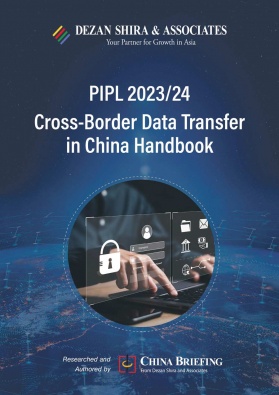China Monthly Tax Brief: September 2024
In this China Monthly Tax Brief for September 2024, we highlight significant taxation developments for businesses and individual taxpayers.
- MOF and STA issued an announcement of stamp tax for restructuring enterprises, expanding the scope of the stamp tax incentives and streamlining the stamp tax process.
- Foshan City in Guangdong Province lowered the industry tax rate for individual businesses subjecting to assessed collection method, effective from January 1, 2025.
- Hong Kong signed its 51st comprehensive avoidance of double taxation agreement (CDTA) with Türkiye.
- MOF release new zero-tariff policy on drugs and medical devices in Hainan’s Boao Lecheng Pilot Zone.
- STA releases guidelines for export tax refunds (exemptions) for cross-border e-commerce overseas warehouses.
China improves stamp tax policy for restructuring of enterprises and institutions
On September 4, 2024, the Ministry of Finance (MOF) and the State Taxation Administration (STA) jointly issued the Announcement of Stamp Tax Policy for Restructuring of Enterprises and Institutions (MOF and STA Announcement No.14). This policy, effective from October 1, 2024, to December 31, 2027, aims to streamline the stamp tax process during restructuring activities. This move will effectively reduce the tax burden during restructuring, facilitating high-quality development for enterprises.
The announcement distinguishes between different restructuring scenarios, such as enterprise restructuring, mergers, splits, asset or equity contributions and transfers, debt restructuring, and institutional reform. It clarifies the stamp tax policies and applicable conditions for business account books, taxable contracts, and property transfer documents, enhancing the precision and effectiveness of tax policies.
|
Stamp Tax Policy on Restructuring Activities |
|
| Business account books |
|
| Taxable contract |
|
| Property transfer documents |
|
Insights from Dezan Shira & Associates:
Historically, similar stamp tax incentives were introduced in 2003, but their scope was limited, supporting only a few scenarios such as enterprise restructuring, mergers, and splits. The new MOF and STA Announcement No.14 marks a significant breakthrough by expanding the scope to include enterprise restructuring, reorganization, bankruptcy liquidation, and institutional reform, thereby increasing policy support for restructuring activities.
A notable new measure is the exemption of stamp tax on property transfer documents for internal transfers of land use rights, buildings, and equity within the same investment entity. Previously, there were inconsistencies in local interpretations regarding the exemption of stamp tax for such internal transfers. This clarification is a significant benefit for relevant enterprises.
Compared to the 2003 policy, another major highlight of the MOF and STA Announcement No.14 is the removal of the requirement for restructuring to be approved by county-level or higher government authorities and enterprise supervisory departments. This change broadens the applicability of stamp tax incentives to include private enterprises, reflecting policy fairness and unity, and stimulating the vitality of various business entities. Removing unnecessary restrictions also promotes the construction of a unified national market.
To ensure that relevant enterprises fully benefit from these stamp tax incentives, the policy adopts a “self-assessment, declaration, and retention of relevant materials for future reference” approach.
When advancing restructuring efforts, enterprises and institutions should closely monitor policy changes and fully utilize the available tax incentives to optimize the reform process.
Foshan City will lower the industrial income rate of IIT from 2025
On September 14, 2024, the Foshan Tax Bureau website published the Announcement of the Foshan Tax Bureau of the State Administration of Taxation on Issues Related to Industry Income Rates for Individual Income Tax (IIT), which will take effect on September 21, 2024. This initiative aims to further support the development of individual businesses and other operating entities, reduce operating costs, and optimize the business environment.
According to the announcement, the operating income obtained by individual industrial and commercial households, individual proprietors, and individual partners of partnership enterprises, which is subject to the assessed collection method, will apply the Foshan Individual Income Tax Industry Income Rate Table.
To ensure the stability and operability of relevant policies, the industry income rates for all industries will remain unchanged for the rest of 2024. Starting from January 1, 2025, the industry income rates for all industries will be reduced.
The Foshan Individual Income Tax Industry Income Rate Table includes seven categories of industries. Among them, the income rate for the manufacturing industry will be reduced from 7 percent to 6 percent, the service industry from 14 percent to 10 percent, and the entertainment industry from 28 percent to 20 percent.
| Foshan Individual Income Tax Industry Income Rate Table | |||
| No. | Industry | Original Industry Income Rate (%) | Adjusted Industry Income Rate (%) |
| 1 | Manufacturing* | 7 | 6 |
| – Processing and Repair | 10.5 | 6 | |
| 2 | Wholesale, Retail, and Trade | 7 | 6 |
| 3 | Services* | 14 | 10 |
| – (1) Food Services | 10.5 | 10 | |
| – (2) Sauna, Massage, Bathing, Foot Bath, Hair Salon, Beauty, Makeup, Medical | 17.5 | 10 | |
| 4 | Entertainment | 28 | 20 |
| 5 | Construction | 10.5 | 8 |
| 6 | Transportation | 10.5 | 6 |
| 7 | Others | 14 | 10 |
* To facilitate taxpayer understanding and streamline operations for local tax authorities, the industry categories in the original Foshan Fixed-Amount Individual Industrial and Commercial Household Income Tax Rate Table will be adjusted starting January 1, 2025. The categories for processing and repair in the manufacturing industry, as well as food services, sauna, massage, bathing, foot bath, hair salon, beauty, makeup, and medical services in the service industry, will be removed. We still list the relevant categories here for easier comparison.
Hong Kong and Türkiye enter into a double tax agreement
On September 24, the Hong Kong Special Administrative Region Government signed a comprehensive avoidance of double taxation agreement (CDTA) with Türkiye. This agreement underscores the Government’s ongoing efforts to expand Hong Kong’s CDTA network, particularly with tax jurisdictions involved in the Belt and Road Initiative.
This CDTA, the 51st agreement concluded by Hong Kong, delineates the allocation of taxing rights between the two jurisdictions, aiding investors in better assessing their potential tax liabilities from cross-border economic activities. The signing at the Fifth Belt and Road Initiative Tax Administration Cooperation Forum highlights the commitment of both jurisdictions to deepening tax cooperation under the Belt and Road Initiative.
Expanding Hong Kong’s CDTA network will enhance the city’s attractiveness as a business and investment hub, consolidating its status as an international economic and trade center.
The CDTA will come into force after ratification procedures are completed by both jurisdictions. In Hong Kong, the Chief Executive in Council will issue an order under the Inland Revenue Ordinance (Cap. 112), subject to negative vetting by the Legislative Council.
MOF releases a new zero-tariff policy on drugs and medical devices in Hainan’s Boao Lecheng Pilot Zone
On September 5, 2024, China unveiled the Notice on the Zero-Tariff Policy for Medicines and Medical Devices in the Hainan Free Trade Port (hereinafter, the “zero-tariff policy”), a new policy exempting import tariffs and value-added tax (VAT) on drugs and medical devices within the Boao Lecheng International Medical Tourism Pilot Zone in Hainan Province (hereinafter, the Boao Lecheng Pilot Zone).
Announced by the Ministry of Finance and other key departments, the zero-tariff policy is designed to boost the region’s development and support the broader Hainan Free Trade Port (FTP) project. Targeting medical institutions, and educational and research entities with independent legal status, the policy is designed to lower costs for patients, stimulate growth in the healthcare sector, and align local medical standards with international benchmarks.
| Key Details of The Hainan’s Zero-Tariff Policy for Medicines and Medical Devices | |
| Exempt entities |
|
| Exempt scope |
|
| Exemption policy |
|
| Management and supervision |
|
| Effective date |
|
Insights from Dezan Shira & Associates:
Companies should fully leverage the cost advantages brought by the “zero-tariff” policy to enhance market competitiveness through optimized supply chain management. To ensure compliance, it is crucial for relevant companies to thoroughly understand and master the details of the “zero-tariff” policy, including its scope, exemption conditions, and regulatory requirements. When applying the “zero-tariff” policy, companies must meticulously maintain all documents and records related to exempt drugs and medical devices, including approval materials and tax payment proofs, to be prepared for inspections at any time.
For more information, please read our separate China Briefing article here.
STA releases guidelines for export tax refunds (exemptions) for cross-border e-commerce overseas warehouses
In line with the State Council’s directives to promote the sustainable and healthy development of cross-border e-commerce and to accelerate the cultivation of new drivers for foreign trade, the STA has issued the Guidelines for Export Tax Refunds (Exemptions) for Cross-Border E-Commerce Overseas Warehouses. These guidelines aim to provide detailed tax guidance for cross-border e-commerce enterprises with overseas warehouses, helping them to accurately understand export tax refund (exemption) policies and proficiently manage the related processes, thereby better adapting to new industry trends.
Export tax refunds refer to the reimbursement of indirect taxes (including VAT and consumption tax) paid during the domestic production and circulation stages of exported goods and services. According to China’s current export tax refund system, goods eligible for tax refunds (exemptions) are those that have been declared to customs, have physically left the country, and have been sold to foreign entities or individuals. Therefore, the prerequisites for processing export tax refunds include customs declaration, departure from the country, and the realization of sales, which implies the transfer of ownership of the goods.
In cross-border e-commerce, the export of goods to overseas warehouses is a standard form of international trade. Based on the sales model, overseas warehouse exports can be categorized into two scenarios:
- Direct sales to foreign companies: Cross-border e-commerce enterprises sell goods to foreign companies at the time of export, and the goods are stored in designated overseas warehouses upon arrival. These goods are subsequently sold by foreign companies on e-commerce platforms. In this scenario, the goods are considered sold at the time of customs declaration and export, meeting the conditions for export tax refunds. Enterprises can apply for export tax refunds with the competent tax authorities according to current regulations.
- Stocking in overseas warehouses: Cross-border e-commerce enterprises export goods to overseas warehouses for stocking purposes and later sell them to foreign consumers through e-commerce platforms. In this case, the goods are not considered sold at the time of customs declaration and export. Once the goods are sold on the overseas e-commerce platform, enterprises can apply for export tax refunds based on the actual sales. To support the development of new business models in cross-border e-commerce, the tax authorities have optimized the tax refund management system, allowing enterprises to choose between a one-time tax refund application or batch applications based on actual sales, without waiting for the complete sale of a batch of goods.
According to the guidelines, the procedures and requirements for export tax refunds (exemptions) for cross-border e-commerce overseas warehouses are as follows:
| Items | Details |
| Export tax refund (exemption) filing | Enterprises must first file for export tax refunds (exemptions) through platforms such as the electronic tax bureau or the international trade “single window.”
Any changes or withdrawals of the filing information require the settlement of tax refund (exemption) amounts.
|
| Export tax refund (exemption) application | Application period: Within the VAT declaration period of the month following the customs declaration of the goods, but no later than any VAT declaration period before April 30 of the following year.
Application channels: Free application channels include the electronic tax bureau and the international trade “single window,” or enterprises can apply in person at the competent tax authority. Application documents: Depending on the type of enterprise, different documents are required, including electronic data, customs declaration forms for exported goods, export invoices, and special VAT invoices.
|
| Management of filing documents for export tax refunds (exemptions) | Enterprises must retain relevant filing documents within 15 days after applying for export tax refunds (exemptions), with a retention period of five years.
Documents can be stored in paper, image, or digital formats. |
| Requirements for foreign exchange collection for export tax refunds (exemptions) | Enterprises must collect foreign exchange for exported goods before the end of the export tax refund (exemption) application period.
If foreign exchange is not collected within the specified period due to specific reasons, enterprises can retain the “Export Goods Foreign Exchange Collection Statement” and supporting materials, which will be considered as foreign exchange collection. In certain situations, enterprises must submit foreign exchange collection materials, including the “Export Goods Foreign Exchange Collection Statement” and supporting documents, when applying for export tax refunds (exemptions). |
Other updates in September
- On September 4, 2024, the STA and the Ministry of Industry and Information Technology (MIIT) jointly released the Catalogue of Non-Transport Special Operation Vehicles with Fixed Devices Exempt from Vehicle Purchase Tax (16th batch). This release, based on the relevant provisions of Announcements No. 20 and No. 35 of 2020, aims to further implement vehicle purchase tax incentives and promote the development of the special vehicle industry. This batch of the Catalogue includes 352 models from 146 enterprises, marking the third release in 2024 and the 16th overall. For models listed in the Catalogue, applicants can mark the tax exemption status in the vehicle’s electronic information, and the tax authorities will process the vehicle purchase tax exemption based on this mark. For vehicles that have already paid taxes before being included in the Catalogue, taxpayers can apply for a refund of the paid vehicle purchase tax according to the regulations if the model is subsequently included.
- The MOF, the STA, the Ministry of Civil Affairs, and the General Administration of Sport jointly issued Announcement No. 12 of 2024, clarifying the tax policy on lottery winnings. The announcement specifies the calculation standards for different types of lottery winnings, requires real-name registration and withholding of individual income tax, and sets data reporting rules, effective from September 1, 2024.
- The State Council Tariff Commission issued Tariff Commission Announcement [2024] No. 8, declaring that from September 25, 2024, the policy of exempting tariffs on certain agricultural products originating from Taiwan will be discontinued. These agricultural products will be subject to the current tariff regulations, and Notices No. 25, No. 3, and No. 28 of the Tariff Commission will be repealed.
- According to Tariff Commission Announcement [2024] No. 9 released by the State Council Tariff Commission, starting from December 1, 2024, products from the least developed countries that have established diplomatic relations with China will enjoy zero-tariff treatment for 100 percent of tariff items to promote common development. However, for products subject to tariff quotas, zero-tariff treatment will only apply to the portion within the quota.
About Us
China Briefing is one of five regional Asia Briefing publications, supported by Dezan Shira & Associates. For a complimentary subscription to China Briefing’s content products, please click here.
Dezan Shira & Associates assists foreign investors into China and has done so since 1992 through offices in Beijing, Tianjin, Dalian, Qingdao, Shanghai, Hangzhou, Ningbo, Suzhou, Guangzhou, Haikou, Zhongshan, Shenzhen, and Hong Kong. We also have offices in Vietnam, Indonesia, Singapore, United States, Germany, Italy, India, and Dubai (UAE) and partner firms assisting foreign investors in The Philippines, Malaysia, Thailand, Bangladesh, and Australia. For assistance in China, please contact the firm at china@dezshira.com or visit our website at www.dezshira.com.
- Previous Article Setting Up a Family Office in Hong Kong
- Next Article Decoding China’s Recent Economic Stimulus Package: What Investors Need to Know

























